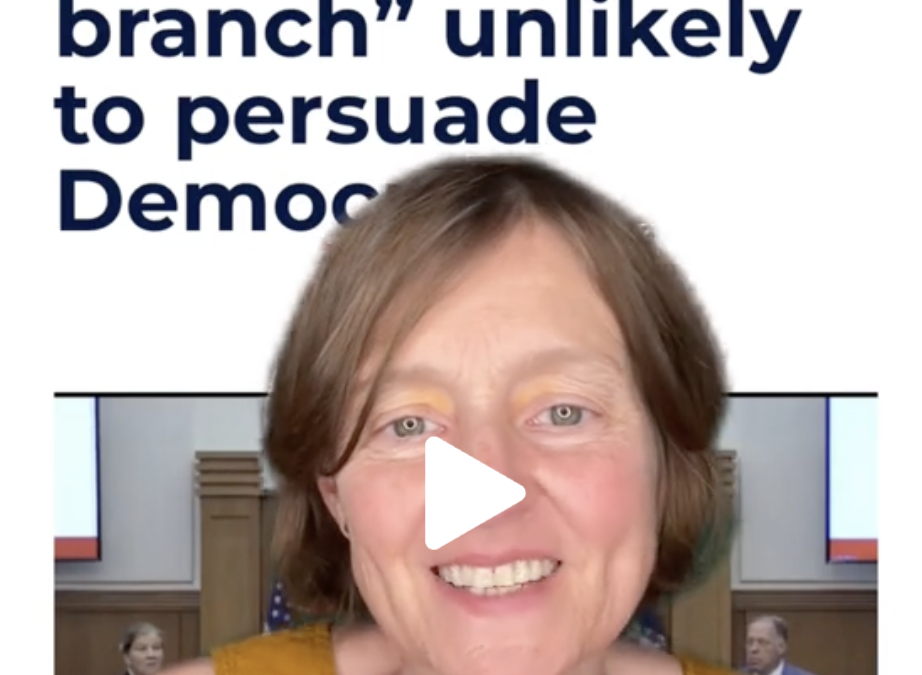Three hundred dollars was the difference between having health insurance or having to pay out-of-pocket for Sophia Spriull. Sophia was at a chemotherapy treatment for her stage four liver cancer when she learned that her husband filed for divorce and removed her from his insurance policy.
Out of work due to the rigorous treatment her cancer required, Spriull’s only option was Medicaid. But her disability check, which was less than half what she was making when employed, was $300 over the $800 monthly limit Virginia used to have for adults to get on Medicaid.
Spriull got a little help from the state, but just for chemotherapy treatments. To add to the challenge, she had to bring every invoice for every treatment to social services to receive assistance, a bureaucratic nightmare for anyone, much less someone fighting advanced cancer.
“I didn’t know if I could get my eyes checked or go to the dentist,” Spriull said in an interview. “I didn’t want them to take away the chemo if I went to the dentist, and that was a factor for me. I didn’t go nowhere else to make sure I got the cancer treatment I needed.”
That also meant sacrificing pain medication, which Spriull had to pay for out-of-pocket.
“I couldn’t pay for all my pain medicine, I only could pay for one. I couldn’t really afford anything when rent took all my money, but I had to get one script so I wouldn’t be in [debilitating] pain.”
That all changed for Spriull when Virginia expanded Medicaid in January. When she got her Medicaid card in the mail, Spriull said she teared-up.
“I cried … it was like a really big burden was lifted. I am sure there are a lot of people in a similar situation,” Spriull said. Instead of paying $65 for pain medication, Spriull said she could use it to pay her light bill, or maybe start saving a little money.
This is the case for hundreds of thousands of Virginians, some of whom are getting health insurance for the first time in their adult lives. According to the Virginia Department of Medical Assistance Services, 243,284 adults have enrolled in Medicaid since it was expanded in January. Sixty-two percent of the new enrollees are women, and 36 percent are parents.
Eliot Fishman, senior director of health policy at Families USA, a health advocacy group, said Virginia’s enrollment process has been a resounding success.
“There have been significantly over 200,000 people enrolled, and the rollout appears to have been very smooth. It’s really a dramatic gain for the state of Virginia, and a lot of people who are going to have regular access to medical care who have not for a long time,” Fishman said in an interview.
But Fishman cautioned that those gains could be significantly curtailed if Republicans get their way and the state implements work requirements for people to qualify for Medicaid coverage.
Arkansas recently added similar requirements with disastrous results, Fishman said.
“One really important thing we now know about work requirements is there are huge, negative impacts on enrollment levels, just from documentation requirements,” Fishman said. “It’s a major threat to the gains Virginia just made … I hope the governor and the legislature are closely watching how implementation has gone in Arkansas.”
Spriull said her cancer has spread more in her liver, and she’s going back for another round of chemo at a higher dosage. “Sometimes I feel OK, but most of the time, I don’t. It’s one day at a time.”
Her message for elected officials who wanted to keep her off Medicaid because of $300 in a disability check?
“I just wish they were mindful of keeping people healthy, despite their income. It sounds so hideous — are they on the same planet as everybody else? Honestly, if those people [that] made those decisions actually walked in somebody’s shoes, maybe they’d have a different perspective.”
Politics

Virginia NAACP to sue Youngkin over handling of DEI records requests
The civil rights group said it would take Youngkin to court for not releasing communications between his office and state universities related to...

VIDEO: After vetoes, Youngkin’s budget “olive branch unlikely to persuade Democrats
Can the Democrats in the General Assembly and Republican Gov. Glenn Youngkin really find "common ground" among his proposed state budget amendments?...
Local News

Virginia verses: Celebrating 5 poetic icons for National Poetry Month
There’s no shortage of great writers when it comes to our commonwealth. From the haunting verses of Edgar Allan Poe, who found solace in Richmond's...

Join the fun: Recapping Family Literacy Night’s storybook adventures
When’s the last time you read a book aloud with a loved one? If it’s difficult to answer that question, then maybe it’s time to dust off that TBR...




